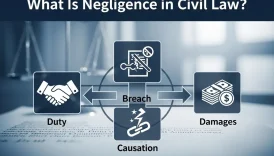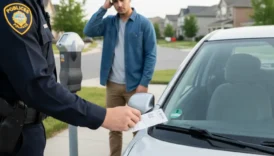What Is an Emancipated Minor?

An emancipated minor is a young person under the age of majority (usually 18) who has been granted legal independence from their parents or guardians. Emancipation allows the minor to make important personal, financial, and medical decisions on their own, similar to the rights of an adult. This legal status is typically granted by a court under specific circumstances.
Simple Definition
An emancipated minor is an individual under 18 who has been legally recognized as independent from parental control. Once emancipated, the minor can sign contracts, manage income, make medical choices, and live separately, while parents are no longer legally responsible for their support.
Real-Life Examples
- Marriage: In some jurisdictions, minors who get married may be considered emancipated.
- Military service: Enlistment in the armed forces can grant emancipation.
- Court petition: A 16-year-old successfully petitions the court to live independently due to parental neglect.
- Financial independence: A teenager with a steady job proves they can support themselves without parental assistance.
Importance of the Term
- Autonomy: Grants minors control over their personal, financial, and medical decisions.
- Responsibility: Emancipated minors must support themselves and cannot rely on parental financial obligations.
- Legal recognition: Protects minors who face unsafe or unsuitable family environments.
- Limitations: Even emancipated minors may still face age-based restrictions (e.g., voting, alcohol consumption).
Comparison (Emancipated Minor vs. Regular Minor)
| Factor | Emancipated Minor | Regular Minor |
|---|---|---|
| Decision-making | Independent (contracts, healthcare, etc.) | Parents/guardians make major decisions |
| Parental duty | Parents no longer financially responsible | Parents legally responsible |
| Court role | Must approve emancipation (except in special cases) | No court approval needed |
FAQ
1) How does a minor become emancipated?
Usually through a court petition, though marriage or military service may also result in emancipation.
2) At what age can minors seek emancipation?
Varies by state, but typically between 14 and 16 years old.
3) Can emancipated minors still go to school?
Yes. They retain the right to attend school and receive an education.
4) Do emancipated minors gain all adult rights?
Not all. They cannot vote, buy alcohol, or engage in activities restricted by age laws.
5) Can emancipation be reversed?
In rare cases, yes. If circumstances change, courts may terminate emancipation.
Closing
An emancipated minor is a young person legally recognized as independent, able to make their own decisions without parental control. While emancipation provides autonomy, it also places full responsibility on the minor to manage their life and support themselves.






